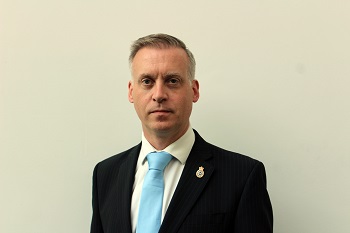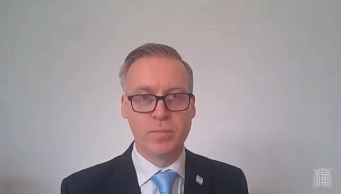
PFEW Conduct & Performance Lead Phill Matthews
Police commissioners from England and Wales have reinforced the need to turn a key PFEW campaign into reality to a Home Affairs Select Committee which has been investigating the issue of imposing time limits on lengthy conduct investigations.
The effect of lengthy investigations on officers has been at the centre of PFEW’s long running ‘Time Limits’ campaign, which has called for a restriction on the amount of time an IOPC investigation can last, reducing the investigation period to 12 months. Currently, these investigations can last for many years and this can be unfair to police officers.
The committee, made up of a panel of MPs, heard evidence from three police commissioners and two academics about how police conduct complaints are handled. All three PCCs agreed the length of investigations was a key issue when they gave evidence.
PFEW’s Conduct and Performance lead Phill Matthews had previously given evidence to the same committee on January 27, when he described the deep and damaging effects long-term investigations can have.
Phill Matthews said: “We hope when this enquiry has finished that one of its recommendations will be to ensure that some consequences are added to the simple explanation that is all the IOPC or PSD have to provide to PCC at the present. That will ensure the system is fair and swift for both the public and officers alike.”
Julia Mulligan, Commissioner at Office of the Police, Fire and Crime Commissioner for North Yorkshire, explained the devastating impact lengthy misconduct investigations can have on police officers. She said: “The timeliness issue was causing all sorts of issues for individual officers. In fact, the impact of it was much wider, in terms of views of lack of competency on the part of the IOPC and lack of fairness to officers.”
Sue Mountstevens, Police and Crime Commissioner for Avon and Somerset, acknowledged that progress had been made at the Independent Office for Police Conduct (IOPC), especially in restricting the time limit to 12 months before an explanation has to be given to the PCCs, but also mentioned that greater accountability was necessary, adding: “ I wonder where the accountability is to the IOPC if they go longer than 12 months”.
Rt Hon Alun Michael, Police and Crime Commissioner for South Wales, commented on the need for a Time Limit, and said: “We ought to look at the acceptable length of time being reduced from 12 months to something much shorter than that.”
After the latest hearing, PFEW’s Phill Matthews added: “It is really positive that all seem to agree that 12 months for an investigation is more than adequate and that PCCs would like that to see that reduced and have more ability to hold the IOPC to account for the time investigations take. PFEW will continue to campaign relentlessly to ensure fairness for our members.”
Last year, PFEW took hard-hitting testimony on the way lengthy investigations can ruin officers’ lives directly to MPs. This included a report on MPS firearms officer Adrian Daly, who was falsely accused of assault and worked for almost three years to clear his name in a case full of errors.














